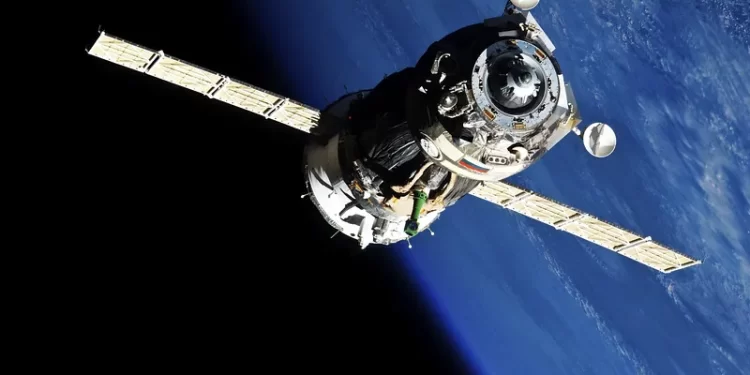NASA experts are calling for a treaty to prevent “space junk” from irreparably threatening activity in Earth’s orbit. The treaty, NASA says, needs to be legally binding in order to keep the relatively new space industry sustainable.
Our planet is already thought to be surrounded by 9000 satellites, yet Earth’s orbit is predicted to only get more crowded; the European Southern Observatory (ESO) predicts this number to grow to 75,000 by 2030.
Satellite technology is valuable to us in many ways – including in tackling the climate crisis – but the growth of the industry today could in turn limit itself in the future, as large amounts of orbital space may become unusable. Disused satellites can also collide with each other, creating even smaller orbiting fragments that are difficult to track.
“Satellites are vital to the health of our people, economies, security, and Earth itself. However, using space to benefit people and the planet is at risk,” said the head of Spaceport Cornwall, Melissa Quinn, in a recent statement, “humanity needs to take responsibility for our behaviours in space now, not later. I encourage all leaders to take note, to recognize the significance of this next step, and to become jointly accountable.”
For centuries we have treated our oceans like a dustbin let’s not make the the same mistake again. https://t.co/dtyk4nvFJt
— Prof. Richard C Thompson OBE FRS (@ProfRThompson) March 9, 2023
Like Earth’s oceans, its orbital space also needs protecting
According to estimates, there could already be over 100 trillion untracked pieces of old satellites in Earth’s orbit, similar to the “plastic smog” in our oceans. The fragments pose a major risk to other, functional satellites. In fact, satellites have to perform hundreds of manoeuvres each year to avoid collisions that would not only damage the satellite but also produce more “space junk.”
This space junk doesn’t currently pose a threat to space exploration, says the UK Natural History Museum, but recent incidents have proved just how quickly these collision situations can become dangerous for an astronaut.
Related articles: Animals In Space: We Owe Them Now And In Future | Shattering Consensus? James Webb Telescope Discovers Galaxies Science Says Shouldn’t Exist | First Disabled Astronaut in History: Space Is for Everyone
In November 2021, astronauts aboard the International Space Station (ISS) had to take shelter in their transport spacecraft when they passed too close to space junk. In 2022, the ISS was forced to evade a fragment of space junk from a destroyed Russian satellite. The Russian satellite had been destroyed by a widely-criticised anti-satellite missile test in 2021. And just this month, the ISS had to fire its thrusters to move out of the path of an Earth-imaging satellite.
In an article titled “Protect Earth’s orbit: Avoid high seas mistakes,” published earlier this month in the journal, Science, NASA Jet Propulsion Laboratory scientists, along with researchers from the University of Plymouth, the Arribada Initiative, the University of Texas at Austin, the California Institute of Technology, Spaceport Cornwall and the Zoological Society of London (ZSL), stressed the urgent need for a global consensus on managing Earth’s orbit.
The scientists, including experts in satellite technology and oceanic microplastics, say any agreement ensuring satellite sustainability should take the “polluter pays” approach. This method places responsibility for the debris onto the satellites’ users, from the moment of launch onwards. To encourage accountability, experts also note that factors like commercial cost should be taken into account.
The suggested move is consistent with the UN High Seas Treaty, which makes complying members accountable for international waters. This treaty took 20 years to implement and scientists backing a space treaty are keen to avoid a similar delay.
Speaking to the online space news outlet, Space.com, University of Plymouth fellow and treaty supporter, Dr. Imogen Napper, said:
“The issue of plastic pollution, and many of the other challenges facing our ocean, is now attracting global attention. However, there has been limited collaborative action and implementation has been slow. Now we are in a similar situation with the accumulation of space debris.”
It seems that now the world has reached an agreement on the pivotal High Seas Treaty, we must ask ourselves: What next? What does the historic treaty mean for the future of assigning global accountability for Earth’s terrestrial and orbital environments?
One thing is clear: Another 20-year delay in legitimising treaties concerning global accountability would not only have a severe effect on environmental sustainability, but also on research sustainability.
Editor’s Note: The opinions expressed here by the authors are their own, not those of Impakter.com — In the Featured Photo: A satellite in Earth’s orbit. Featured Photo Credit: U.S. Government.










